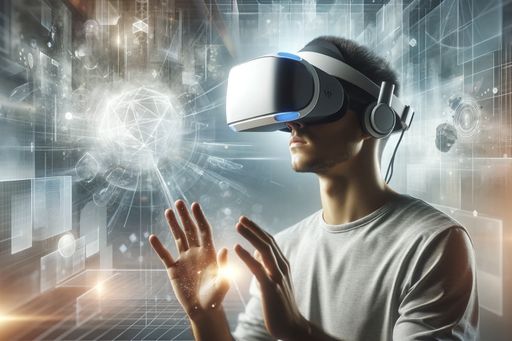Apple’s $3,500 Vision Pro Launches Today—What To Know About The Mixed-Reality Headset
Apple’s Vision Pro headset will be released in the U.S. tomorrow starting at $3,500, bringing the highly anticipated and pricey product to market after more than a decade of development.

Key Facts
The mixed-reality headset’s cheapest version sports 256 GBs of storage for $3,500, while the 512 GB and 1 TB versions will respectively cost $3,700 and $3,900.
Buyers will be required to complete a headscan with their iPhones or iPads to produce a proper fit with the headset, which can also have readers and prescription inserts incorporated into it for $99 and $149, respectively.
Apple analyst Ming-Chi Kuo, who estimated that Apple sold 160,000 to 180,000 Vision Pro units during the first pre-order weekend, warned in a blog post of waning demand for the headset after core fans and heavy users make their purchases.
The Vision Pro allows users to access entertainment, work and task-based apps that can be interacted with by wearers while still being able to see the physical space around them if they choose.
The headset’s display provides more pixels than a 4K TV for each eye, which can come in handy when using streaming apps like Disney+, Max and Amazon Prime Video—though the apps for Netflix, Spotify and YouTube won’t be supported at launch.
The Vision Pro’s battery pack lasts up to two hours and is attached to the headset by a woven USB-C cable.
Surprising Fact
The $3,500 price tag for the cheapest version of the Vision Pro costs more than three weeks worth of pay for the median American paycheck, based on Bureau of Labor Statistics data.
Contrary Views
The Vision Pro will directly compete with Meta’s line of Meta Quest headsets, which feature the Meta Quest Pro ($999) and the Meta Quest 3 ($499). Meta announced Thursday it’s adding Meta Quest support for spatial video playback—a feature boasted by the Vision Pro that will let users upload stereoscopic videos from their iPhone 15 Pro or iPhone 15 Pro Max for playback.
Key Background
Apple has marketed its new headset as a “spatial computing” device giving users the ability to go between full virtual reality and augmented reality (virtual features seen over the real world). Announced last June, the Vision Pro opens up a new revenue stream for Apple as it contends with a possible decrease in iPhone shipments this year. UBS Group AG analyst David Vogt expects the tech giant to ship 300,000 to 400,000 units of the Vision Pro this year, generating up to $1.4 billion in revenue, Bloomberg reported.


